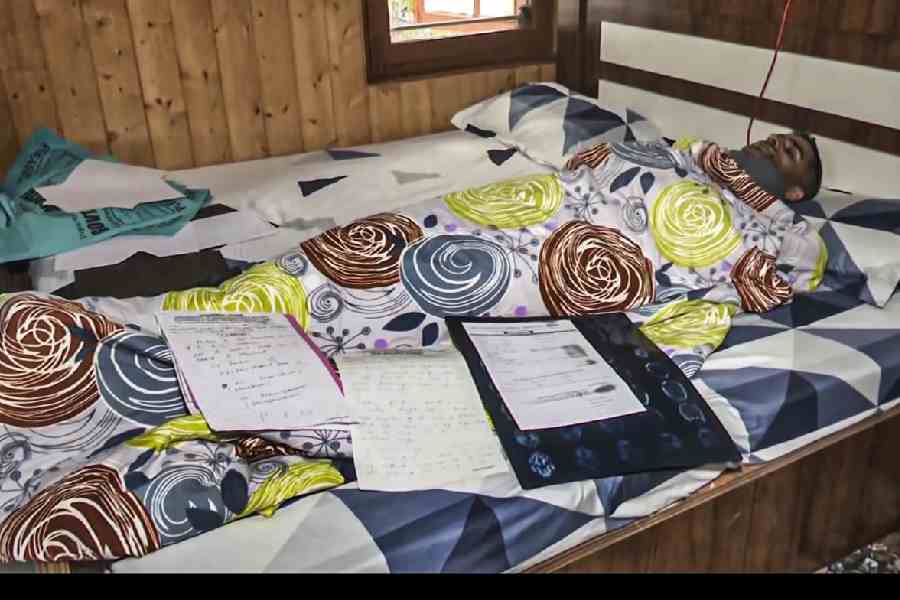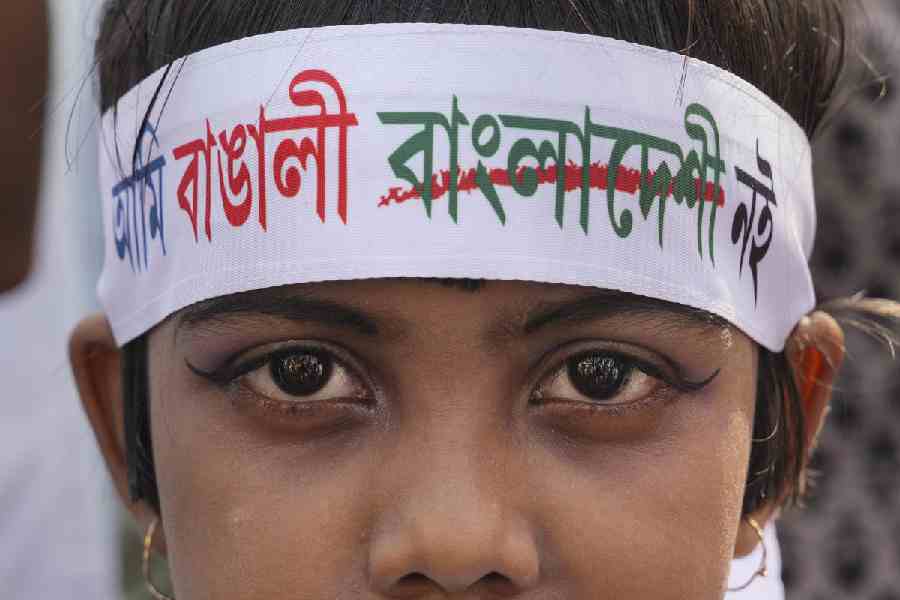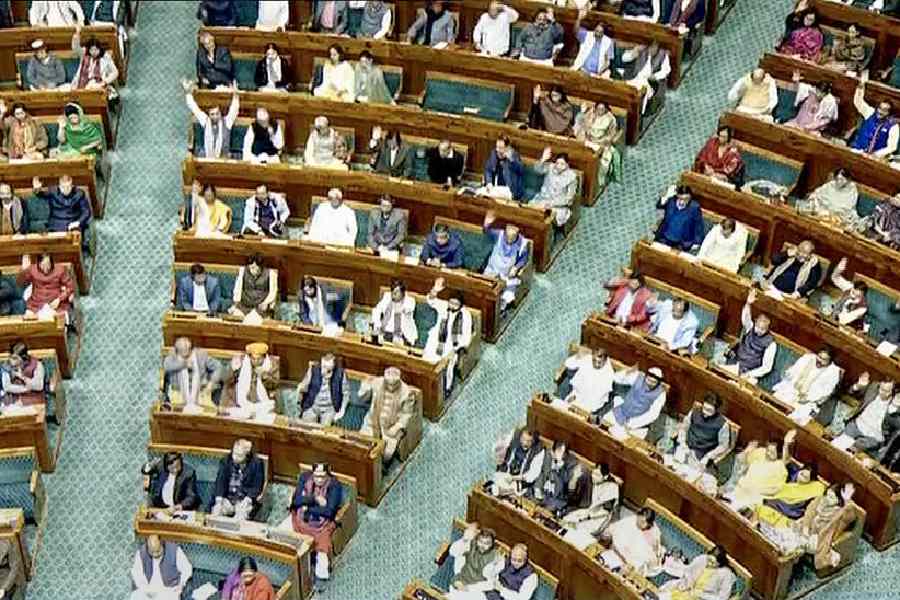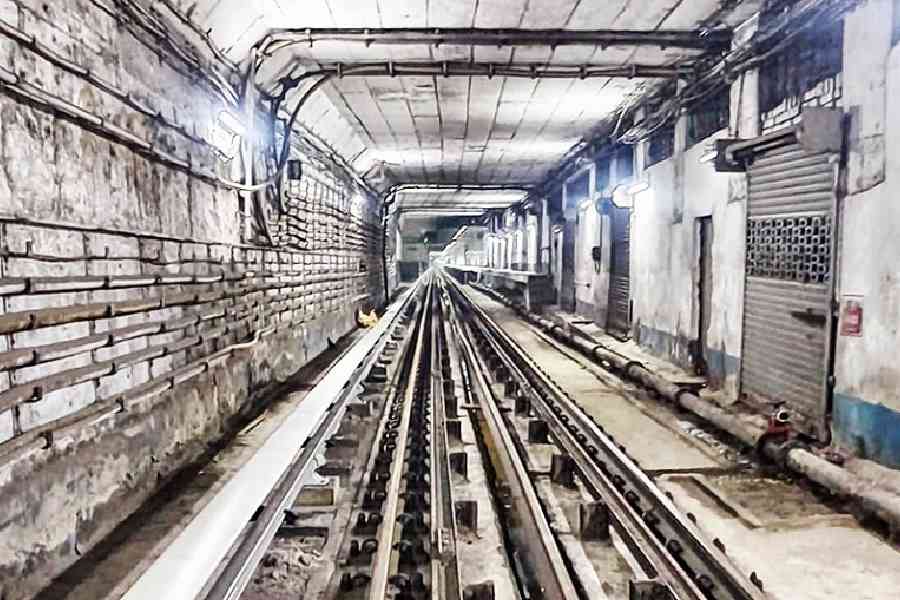Dhobachapar (Dumka), Sept. 27: What is worse, hunger or kala-azar? The question no longer moves people in desolate hamlets on the Dumka-Pakur road atop the Rajmahal hills.
They have lived with drought, high prices of foodgrain and no work; this year they have been hit by marauding elephant herds too which invaded what remained of the paddy fields. People are dying of both hunger and kala-azar and there is little sign of any state government initiative to provide relief.
The sight of Bishun Deheri climbing the steep slopes of Dobapahar, however, galvanises the family. His wife, Sonamuni, starts collecting firewood while the children jump with obvious joy. Deheri had managed to sell some wood at Durgapur, 12 km away, for the princely sum of Rs 21. Bulk of it, Rs 14 to be precise, however, went to the moneylender who had earlier lent money for the treatment of his ailing daughter. With just Rs 7 left with him, Deheri purchased 200 grams of rice for Rs 5.50 and paid Rs 1 for salt.
Two hundred grams of rice for two adults and two children? The family was happy though and Sonamuni explained that the rice-water too was filling. It was after a gap of 10 days that they would have rice, she explained. The predicament of other families was similar. None of the 30 odd families had rice during the previous three days. The staple, they informed, was either maize, insects, plants, roots, country-liquor or the discarded chaff.
The most prosperous person, villagers claimed, was Kudia Marandi, who was the village pradhan and owned five bighas of paddy fields. But even Marandi claimed he and his family had not had proper food for a week. ?The last time I had rice and chicken was in the month of May,? he recalled, ?when a friend had invited me to his house in Durgapur.? His sons have been collecting wild roots and grass, he confided, and the family has survived on it.
Children are the worst sufferers. Lakshman lay on a cot and could only point towards the road at a distance. A neighbour explained that the child was dying and had stopped speaking. He was indicating the road to say that his parents had gone out in search of work and could return with food. Phool Kumari, another dying child, broke into a bright smile when asked about food she had. Even she did not have the energy to speak though.
The primary school in the village remains closed and the solitary teacher has been absent. Bhrigu, a student, points out that when the school was open, students could at least have some khichdi as part of the mid-day meal scheme. Strangely, the impoverished villagers have no idea of either compensation for crops damaged by elephants or free distribution of foodgrain by the government. The BDO of Gopikandar, Srimath Soren, claimed food for the Annapurna Yojana had reached the block and were distributed among 92 beneficiaries. Why only 92 beneficiaries? He had no answer.
Shyamsundar Deheri got married in May. The honeymoon evidently has not lasted long and he looked desperate and incoherent. His wife had not yet conceived, he wailed one moment. At the very next moment he exclaimed that there was no point in having babies as they would in any case starve to death.











